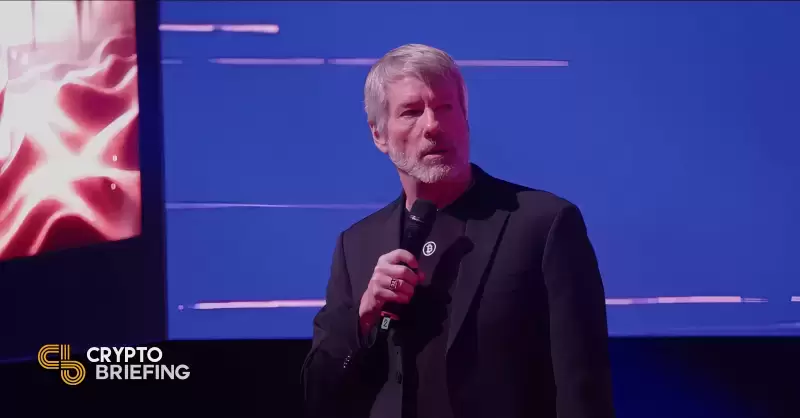 |
|
 |
|
 |
|
 |
|
 |
|
 |
|
 |
|
 |
|
 |
|
 |
|
 |
|
 |
|
 |
|
 |
|
 |
|
Cryptocurrency News Articles
Ripple CTO David Schwartz Sparks Debate on Bitcoin's Identity and Power Dynamics
Apr 22, 2024 at 10:37 pm
Ripple's CTO, David Schwartz, challenges the notion that majority hash power determines the definition of "Bitcoin." Questioning the traditional logic, Schwartz argues that rational users prioritize their interests rather than simply following the dominant hash power. He cites the Bitcoin Cash hard fork as an example where users' decisions were not solely based on the longest chain rule. Schwartz's intervention encourages critical思考 about the principles underlying the Bitcoin ecosystem and the relationship between hash power and user choice.

Ripple CTO David Schwartz's Thought-Provoking Discourse on Hash Power Control in the Bitcoin Network
In a groundbreaking discourse, Ripple's Chief Technology Officer David Schwartz has ignited a thought-provoking debate on the pivotal role of hash power within the Bitcoin network. Sparked by a series of tweets, Schwartz's incisive insights challenge the long-held notion that the majority of hash power unequivocally determines the rightful owner of the "Bitcoin" moniker.
This discourse stems from a tweet by X user Curtis Ellis, who articulated the prevailing "BTC logic": that the majority of hash power holds the supreme authority to define and control the Bitcoin name, and that users must operate full nodes to align with hash power that adheres to their preferred ruleset.
To fully grasp the implications of this logic, it is essential to understand the fundamental architecture of the Bitcoin network. Participants, or the computers that maintain and verify the integrity of the blockchain, are known as nodes, primarily categorized as full nodes and miner nodes.
Full nodes, as the name suggests, acquire and store a complete copy of the entire blockchain. By meticulously validating every block and transaction against the established network rules, full nodes serve as the gatekeepers of the Bitcoin network's security and integrity.
The Bitcoin network's unwavering stability is largely attributed to the Nakamoto consensus mechanism, with the longest chain rule being one of its key pillars. In the event of competing chains vying for legitimacy, the longest chain rule dictates that the chain with the most cumulative computational effort prevails as the official blockchain.
Challenging this long-held paradigm, Ripple CTO David Schwartz posits a fundamental question: does the congregation of the majority hash power truly confer the exclusive right to define the essence of "Bitcoin"?
In his own words, Schwartz eloquently articulates: "Do you think a rational user says I want whatever is called bitcoin, whether it's good or bad, honest or corrupt? The former is how you tell what is bitcoin and the latter is how you get what you actually want."
Schwartz's thought-provoking query exposes the inherent flaw in the assumption that the majority hash power can arbitrarily dictate the true nature of Bitcoin. He further illustrates this point by referencing the pivotal Bitcoin Cash hard fork from Bitcoin in 2017.
"When the BTC/BCH fork happened, rational users didn't say, 'I want whichever side is called 'bitcoin' afterwards.' The rule for how to tell which side is 'bitcoin' doesn't tell users which side they want to be on or get them on the side they want."
Schwartz's astute observation highlights the fundamental disconnect between the mere technicality of hash power dominance and the multifaceted considerations that influence user preferences. The designation of "Bitcoin" is not simply a matter of technical prowess but rather a complex interplay of various factors, including community consensus, network stability, and the alignment of values with user aspirations.
As the discourse unfolds, Ripple CTO David Schwartz's insightful intervention compels the Bitcoin community to critically re-examine the principles that underpin the ecosystem. His challenge to the simplistic notion of hash power supremacy opens the door to deeper discussions on the true meaning of Bitcoin and the criteria that define its legitimacy.
Disclaimer:info@kdj.com
The information provided is not trading advice. kdj.com does not assume any responsibility for any investments made based on the information provided in this article. Cryptocurrencies are highly volatile and it is highly recommended that you invest with caution after thorough research!
If you believe that the content used on this website infringes your copyright, please contact us immediately (info@kdj.com) and we will delete it promptly.



























































